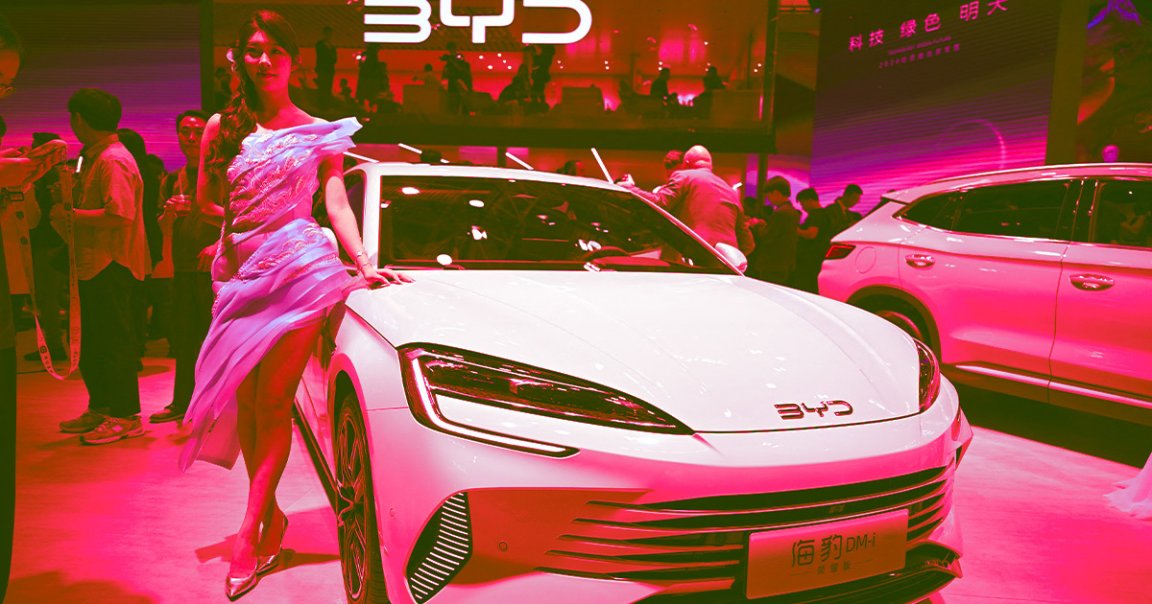
Lean Machine
Chinese automaker and Tesla rival BYD says that its new hybrid powertrain can cover more than 1,250 miles without having to recharge or refuel, Bloomberg reports — an astounding number that exemplifies the appeal that hybrids have to economical drivers who are wary of the comparatively limited ranges of all-electric vehicles.
The powertrain will be debuted in two of BYD’s midsize sedans — the Qin L and the Seal 06, both plug-in hybrids — that cost less than $13,800 domestically.
That cheap price makes them an appealing choice compared to their more expensive competitors with similar offerings. The Toyota Camry Hybrid, for example, has a still impressive but comparatively meager range of ‘just’ around 680 miles, while selling for more than $28,000 in the US.
The fully electric Tesla Model 3 Long Range, meanwhile, boasts a range of around 342 miles, and costs over $47,000, making it a more environmentally friendly, but significantly more range anxiety-inducing option.
Testing the Tests
Presumably, BYD’s figures are based on the CLTC driving cycle, which is the standard in China.
Compared to Europe’s WLTP cycle and the United States’ EPA test, however, China’s is considered the most optimistic. And though that doesn’t mean you should write it off, the CLTC generally produces ranges that are higher than the others.
The notably stringent EPA test, for example, lists the Tesla Model 3 Long Range as having a range of 342 miles, while the CLTC says 443 miles — about a 30 percent difference. Europe’s WLTP cycle is soundly perched in between, claiming 421 miles.
Still, even if you bump a third off of BYD’s purported range, that still comes out to around 825 miles of solid, gas-stop, and charging-free driving. Some speculative math, sure, but the takeaway is clear: these Chinese hybrids are no slouches.
Trade Wars
Americans wanting to buy them, however, will have to pay a hefty premium, if they make it over here at all. President Joe Biden recently imposed a 100 percent tariff on all imported Chinese EVs, up from an already considerable 25 percent, in a bid to protect domestic automakers while seeming tough on China.
Europe, meanwhile, seems poised to pluck up these cars that the US has decided to pass on.
All that being said, range is one of the biggest anxieties weighing on the minds of buyers on the fence about adopting EVs. And so BYD, whose EVs are impressively popular domestically, is aiming to build cheap, energy efficient cars that don’t require the intimidating commitment to something fully electric.
Perhaps it’s a strategy that could win out in the long run, as some automakers feel less certain about an all-electric future.
More on cars: Electric Cars Are Twice as Likely to Hit Pedestrians, Researchers Find